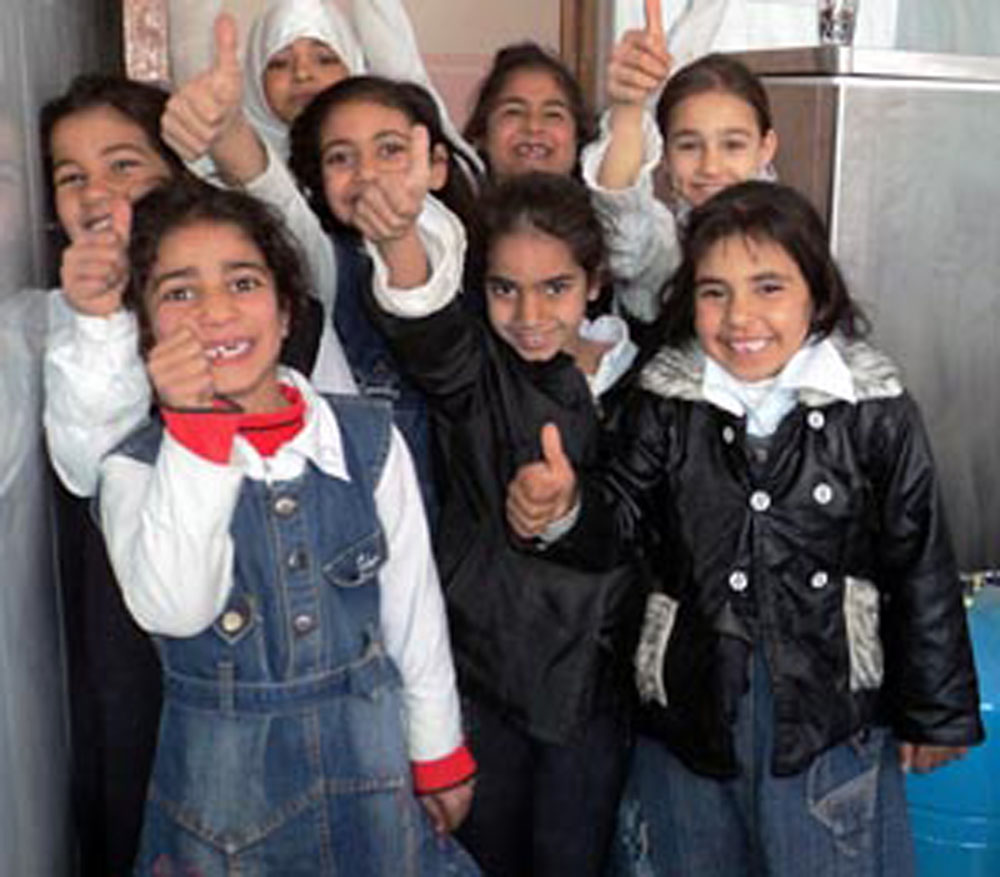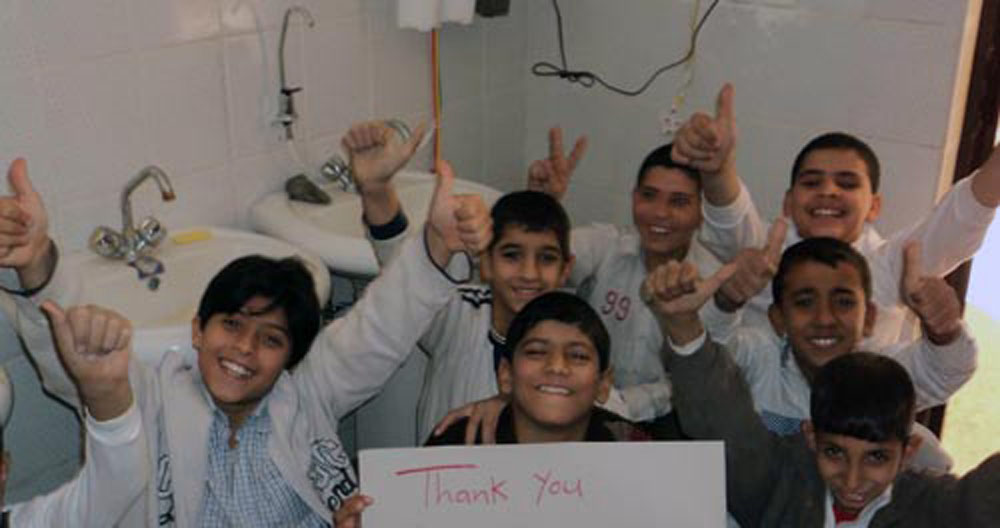 |
Forming Relationships of Understanding Promotes HealingBy Amy BlumenshineA version of this article first appeared in InterActs, a newsletter of the Minneapolis Area Synod, ELCA.
The healing journey for veterans in the aftermath of war can take varied pathways. Some veterans of foreign wars have found it helpful to develop relationships of understanding, not of war, with the people of the countries where they were deployed. For Marcus Eriksen, a US Marine in the first Gulf War, connecting with the Iraqi and American Reconciliation Project (IARP), has been a pathway to relief. "Participating in the healing process for someone else kind of heals yourself." Out of a collaboration with the Veterans Book Project, the IARP recently worked with some Iraqi refugees in Minnesota to make books and short films that describe their experiences. The videos and books, as well as a curriculum, are provided free of charge alongside books by American veterans on IARP's website, www.iraqiartproject.org. Eriksen encourages veterans to "Dive right in! No matter where you are in trying to understand your war experience, the worthwhile things IARP does for other people are good to be part of. You may be surprised by the profound effect. Good work is being done for the people who really need it." He noted that many veterans feel sorry for the civilians in war zones. "We take away from others during war. At the same time you feel you're doing something for your country, you're taking away from the Iraqi people and the people of Afghanistan." Creating books and videos with Iraqi refugees and American veterans is the latest in a series of projects that IARP has initiated which include humanitarian efforts in Iraq and educational citizen exchanges. Says veteran Riley Sharbonno, "IARP offers a wider spectrum of discourse about the effects of war on the human condition. It presents real stories by real people who have been directly affected by forces much larger than themselves, in many ways acting beyond their control. The challenge for IARP is to make these perspectives accessible to the public, no easy task." In addition to the new curriculum materials, which could also be used in church educational settings, IARP has worked to improve water access for the children of Iraq (www.waterforpeaceproject.org). Many veterans find great satisfaction in helping to build up areas that have been hurt by war. Eriksen notes that dehumanization of the enemy in war is something tactical that happens on the battlefield. Involvement with IARP, he says, helps one's empathy to come back. Psychologists view empathy as a key ingredient for successful relationships at home and work. Sister cities Minneapolis ans Najaf, Iraq have sent each other delegations for professional training and friendship building, facilitated by IARP. Sister city relationships offer a way for ordinary Iraqi and American citizens to support friendship, healing and Iraqi efforts to rebuild. One Iraqi supporter of IARP explained: "This project [IARP] marks the beginning to create a more hopeful tomorrow... I want my people to bury the past and start over. I seek to remove the clash of civilizations from the dictionary of our lives. I seek to build a future that is based on our hopes rather than our fears and apprehensions." Veterans differ as to when they are ready for healing efforts in the aftermath of war, but it often takes a while. A recent study showed that it is averaging 7.5 years for post 9/11 veterans to encounter "meaningful" help. Church leaders and congregations can help accompany veterans as each makes meaning of their war experiences. Learn more about the Veterans Book Project, another important pathway for healing and understanding, at www.veteransbookproject.com. Learn more about the Iraqi and American Reconciliation Project at www.reconciliationproject.org. Amy Blumenshine, PhD is a diaconal minister in the Evangelical Lutheran Church in America (ELCA). Amy's family includes a number of veterans, including her father. See mpls-synod.org/programs/vets.
|



